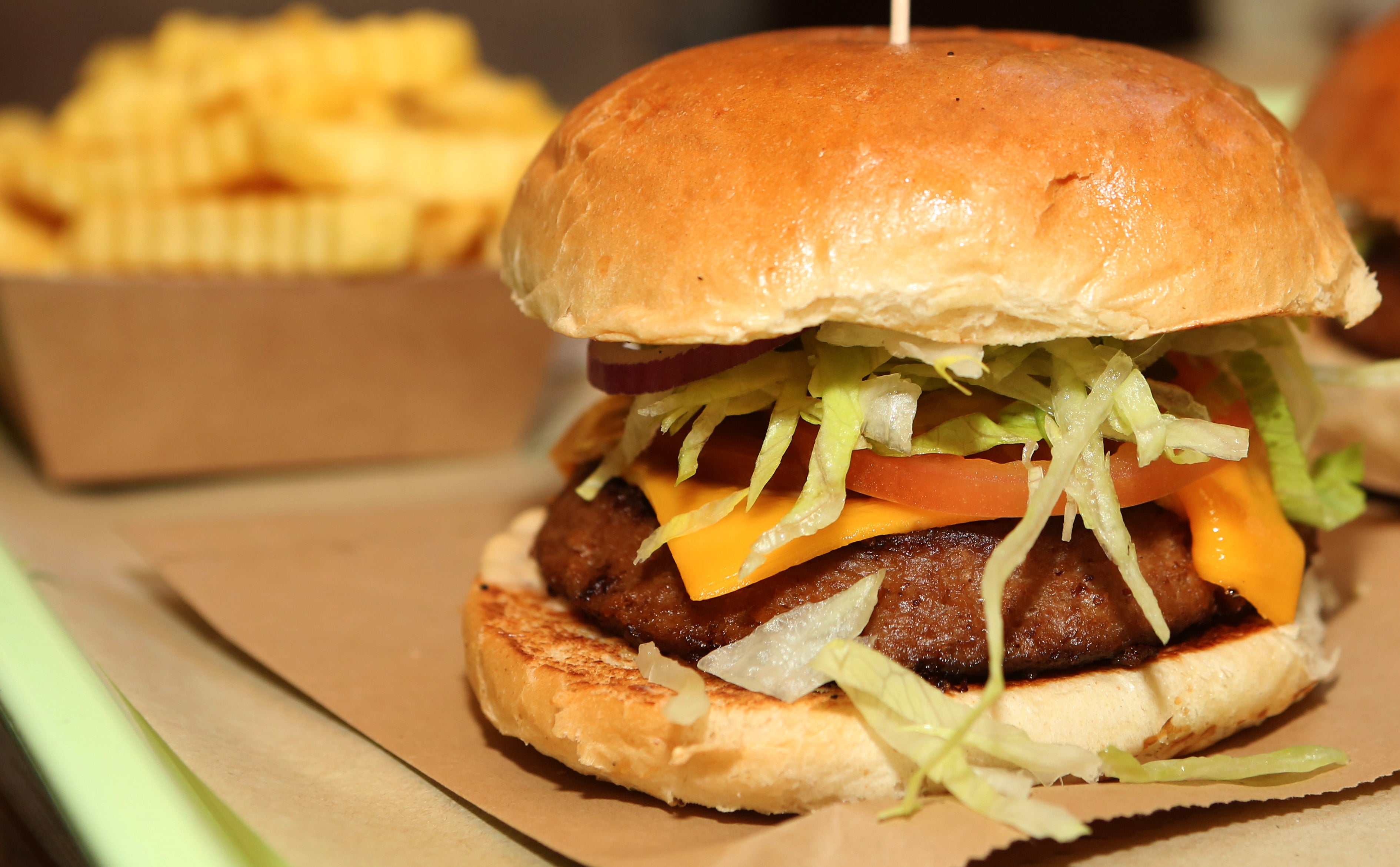Carbon footprint labels on menus inspire diners to choose more climate-friendly meals, study finds
Study finds information about emissions nudges customers towards greener diet

Your support helps us to tell the story
From reproductive rights to climate change to Big Tech, The Independent is on the ground when the story is developing. Whether it's investigating the financials of Elon Musk's pro-Trump PAC or producing our latest documentary, 'The A Word', which shines a light on the American women fighting for reproductive rights, we know how important it is to parse out the facts from the messaging.
At such a critical moment in US history, we need reporters on the ground. Your donation allows us to keep sending journalists to speak to both sides of the story.
The Independent is trusted by Americans across the entire political spectrum. And unlike many other quality news outlets, we choose not to lock Americans out of our reporting and analysis with paywalls. We believe quality journalism should be available to everyone, paid for by those who can afford it.
Your support makes all the difference.Listing the carbon footprint of dishes on menus encourages diners to choose more climate-friendly meals, researchers have found.
A study by the University of Würzburg in Germany found restaurants providing colour-coded information about the greenhouse gas emissions of each meal can nudge customers to opt for the greener option.
Dr Benedikt Seger, who led the study, said: "The participants in our study chose the veggie burger more often when it was presented as the standard option on the menu and not the beef burger, as is usually the case.”
A total of 265 volunteers were presented with nine menus with information about greenhouse gas emissions. They were told, for example, that a couscous salad could be ordered with beef (high emission), chicken (medium emission), or falafel (low emission).
The study found participants chose more climate-friendly dishes when labels were available, leading to an average of 200 grams less carbon per meal.
"These are remarkable results when you consider that by no means all of the participants in the study gave up meat dishes and other CO2-intensive meals because of the defaults or labels," Dr Seger added.
The researchers said their findings showed people were willing to consider the pressing problem of the climate crisis even in small everyday decisions such as ordering a meal.
Dr Seger, a psychologist, said: "This is by no means self-evident when we consider that in a restaurant we enjoy the food, the atmosphere and the get-together with others, so we do not want to think about existential threats like the climate crisis.
"If a restaurant highlights the vegetable patty instead of the meat patty as a standard option in its burger menu, it communicates: ‘Guests at this restaurant usually order the veggie burger.’ In psychology, we call this a descriptive norm.
“This presumed knowledge of what others do in a certain situation - regardless of whether it is desired or accepted - can have a significant influence on behaviour.”
Join our commenting forum
Join thought-provoking conversations, follow other Independent readers and see their replies
Comments